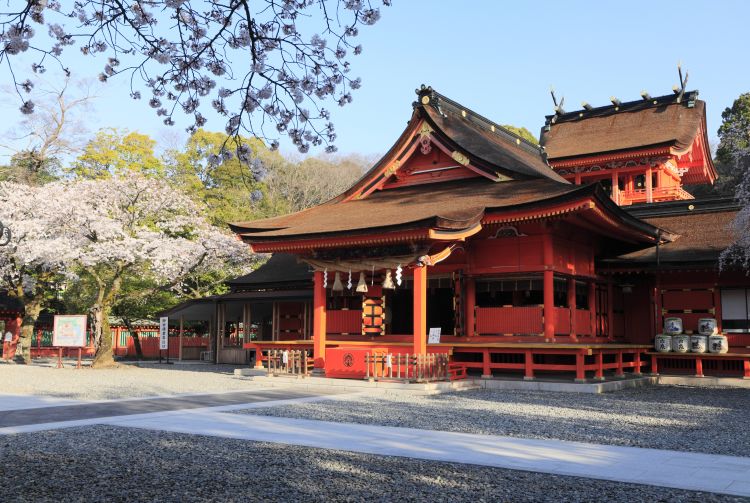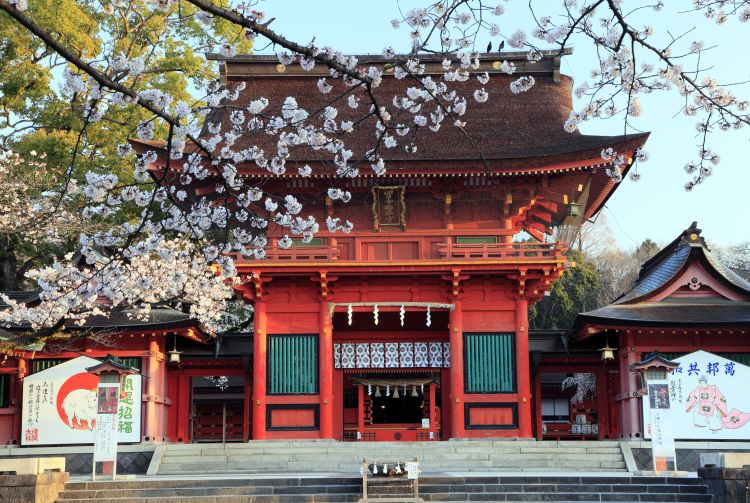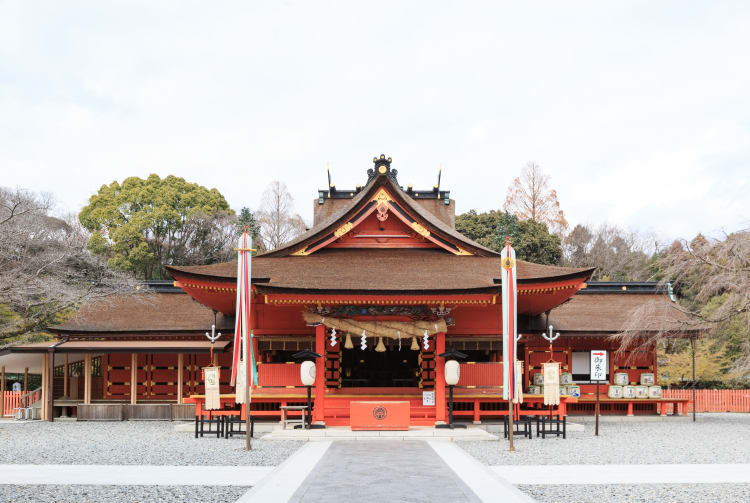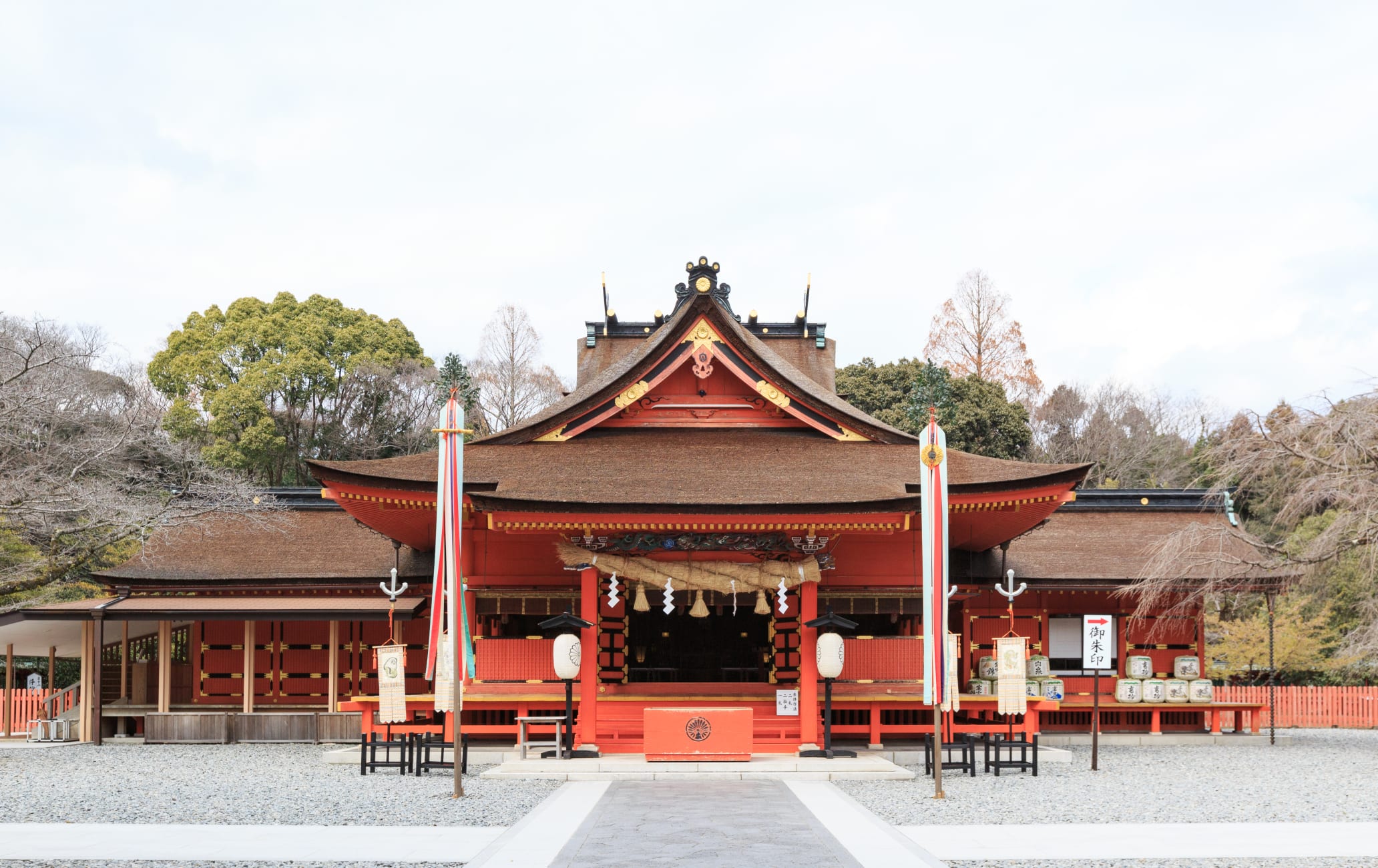A shrine built to placate an angry mountain god
Fujisan Hongu Sengen Taisha is located close to Mt. Omuro . The grand shrine's origins stretch back to the time of the nation's 11th emperor, Suinin, who enshrined the god Asama-no-okami at the mountain's foot to seek spiritual protection from volcanic eruptions, which were frequent enough that people believed Mt. Fuji , considered the embodiment of a god, was angry with them.
Don't Miss
- Frequent local festivals—over 159 each year
- The one-of-a-kind construction of the inner shrine
- The shrine gardens and Kagami Pond, the mirror pond
How to Get There
The shrine is accessible by train or bus.
You can walk to the shrine in about 15 minutes from Fujinomiya Station on the JR Minobu Line. In addition, Miya buses run between Fujinomiya Station and the shrine once every one to two hours.

Centuries of patronage from the Tokugawa clan
Earthquakes devastated much of the shrine over the years. The structures that remain were built in the 1600s by shogun Tokugawa Ieyasu, and the Tokugawa clan kept up its patronage of Fujisan Hongu Sengen Taisha for several generations afterward. The shrine has been a symbol of the region and the head shrine of more than 1,300 Sengen shrines in Japan for over 11 centuries.

Mt. Fuji was the focus of worship for centuries, and that reverence remains strong. Fujisan Hongu Sengen Taisha once served as a departure point for people making the pilgrimage up Mt. Fuji .
Frequent festivals and fun
Fujisan Hongu hosts more than 159 festivals each year, so your chances of coming across one during your visit are high. Particularly popular festivals include Setsubun in February, a yabusame mounted horseback archery festival in early May, a ceremony to open the climbing season in July, and a massive three-day celebration in November. This beloved local tradition offers finery, floats, music, and dancing.



























































